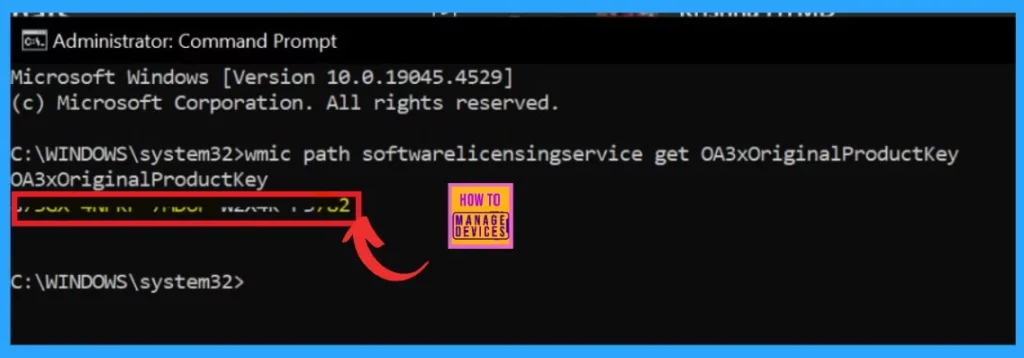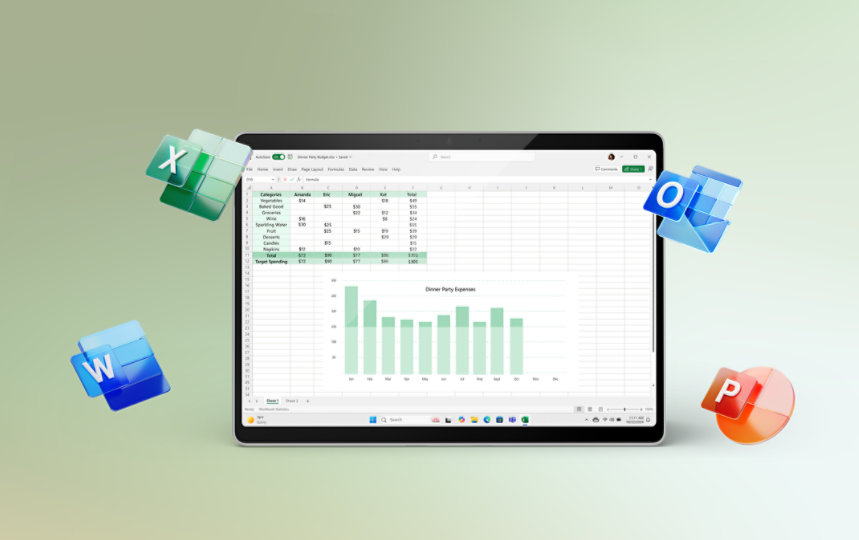Excellent Strategies On Choosing Windows Microsoft Office Professional Key Websites
Excellent Strategies On Choosing Windows Microsoft Office Professional Key Websites
Blog Article
The 10 Most Effective Strategies For Determining What Type Of License You Need When Purchasing Windows 10/11 Home/Pro Products
Understanding the type of license that you purchase is crucial when buying Windows 10/11 Pro and Home license keys for activation of the product. Different types of licenses come with distinct rules, restrictions, and costs. Top 10 tips to help you choose the right type license.
1. Learn to differentiate between OEM Licenses, Retail and Volume Licenses
OEM (Original Device Manufacturer) is installed by default, normally on computers that are brand new. The first device that is activated is the OEM. Cannot be transferred from one device to another.
Retail is a separate purchase that can be moved between devices if you deactivate it on the original device first. Flexible devices cost more.
Volume License (VL) is a software designed for companies and allowing multiple activations using one code. Not intended for home users and could be dangerous when not purchased from a reputable source.
2. Retail License for Flexibility For Flexibility
Retail Licenses are the most suitable option if your plan is to upgrade, or to move PCs to the next. They let you transfer keys to different devices. OEM keys are tied to the original hardware they're activated for.
3. OEM licenses are affordable but limited
OEM licenses tend to be more affordable. They are often part of new computers. They're also ideal for those who don't want to change their hardware.
It is essential to note that these programs cannot be moved from one PC to another in the event of a replacement or upgrade.
4. Volume licenses are intended for commercial users, not for home users
Volume licenses are specifically designed to accommodate businesses that need multiple activations.
Anyone who promises you an "Volume License key" is most likely a scammer, since these keys are normally offered to companies and come with strict rules.
5. Understanding Digital Licenses
Microsoft launched Digital Licenses for Windows 10 and 11 instead of the Product Key.
By signing in with your copyright you can restore your activation. This is a fantastic way to keep track of things if hardware changes.
6. Upgrade Paths Between Versions
Certain license keys work only with licensed copies of Windows. Make sure that the license key is valid for an upgrade or a full version.
For example, moving from Windows 10 Home to Pro requires an entirely different key than a fresh install of Pro.
7. Be aware of ESD (Electronic Software Delivery Licenses)
ESD licenses are sold digitally (often from online stores) without the physical packaging. You can be confident in them if you buy from a trusted retailer like Microsoft, Amazon or any other authorized retailer.
Check to see if the person selling an ESD key is authorized to avoid issues with deactivation.
8. Beware "Used" or "Recycled Licenses"
Some sellers attempt to sell OEM or volume license keys that are already used. Microsoft will usually flag and block these.
You should ensure that the license you purchase is a fresh, unused one.
9. Restrictions and limitations on activation
OEM: Can only be used only once per device.
Retail Multiple transfers are possible, but Microsoft Support is required to restart the transfer.
Volume: There is a set number of activations that are subject to an agreement with the company. Microsoft could deactivate the volume licensing that is misused.
10. Check Transfer Rights
A Retail License gives you transfer rights between devices, however you must deactivate it on the original device first. This is ideal when you upgrade your device or switch it often.
OEM licenses don't come with transfer rights. The key cannot be used on a different device, regardless of whether it fails.
Quick Summary:
Retail: Transferable, connected to Microsoft accounts, and gives the greatest flexibility.
OEM: Less expensive, tethered to one device, the best for a single-use situation.
Volume: Risky for consumers unless purchased directly through authorized resellers.
Digital License: Easier to manage through copyright integration. automatic renewal for hardware upgrades.
By understanding these distinctions and distinctions, you will be able to determine the best type of license to meet your needs, avoid potential mistakes, and make sure you have a legitimate and long-lasting copy Windows. Take a look at the top rated buy windows 10 license key for more info including buying windows 11, license key windows 10, windows 11 pro license, windows 10 activation key, get license key from windows 10, buy windows 11 home, windows 10 pro key, windows 11 home activation key, Windows 11 keys, windows 11 product key and more. 
Top 10 Tips For The Type Of License Type When You Purchase Microsoft Office Professional Plus 2019/2021/2024
To ensure that you purchase the right type of license for your requirements, it's vital to know all the different types of licenses available. Different licenses have different terms in terms of support options, as well as restrictions. Here are the top 10 tips to help you navigate different license types:
1. It is important to know the most crucial types of licenses
Microsoft Office Professional Plus licenses are available for purchase in Retail, OEM and Volume Licensing. Each type comes with their own terms and conditions:
Retail: A purchase that is made at once, typically for a single person. It's possible to transfer it (within the users' own personal space) to another device.
OEM: Not transferable and only accessible on the device where it was originally installed. Often cheaper, yet less adaptable.
Volume Licensing : This is a great option for schools or businesses, as it offers a solution that can be adjusted to accommodate many users.
2. Retail licenses to allow flexibility
Retail licenses give you the most flexibility. It permits installing Office on devices and moving the license should you upgrade or replace your computer. This is the ideal solution for individuals who might upgrade their hardware at some point or move the devices.
3. OEM Licenses are lower Cost
OEM licenses may be more expensive, but they are locked to a particular device and cannot transfer. They're designed specifically for computers that come with Office installed by the manufacturer. If you're creating or upgrading a custom computer or laptop, an OEM license could save you money but limit freedom.
4. Understanding Volume Licensing
Volume Licensing is a popular option used by businesses, government organisations and educational institutions. If you are purchasing Office for a significant number of devices or users then this could be the most cost-effective option. It offers many benefits such as central management and simpler deployment.
5. Multiple Device Licenses Multiple Device Licenses
Retail licenses only cover one or two devices (such as a laptop or desktop laptop) and Volume Licenses provide coverage for thousands of devices. Be sure to check the number of devices that a license covers prior to purchasing.
6. Check for License Transferability
Retail licenses can generally be transferred between devices (as as they're deactivated on the prior device), while OEM licenses are locked to the first device and aren't able to be transferred. This is crucial if you change computers frequently.
7. Examine User Licenses vs. Device Licenses
Certain licenses are assigned to individuals, while others are assigned to devices. If you're looking to purchase Office for someone who is using several devices simultaneously Choose user-based licenses, such as those that come with Microsoft 365 Subscriptions or Volume Licenses.
8. Make sure to check for updates and support
Microsoft offers regular updates and full support for Volume Licenses and Retail Licenses. OEM licenses, on the other hand might only come with limited support and will not be updated until the device to which it's connected ceases to receive updates from the manufacturer.
9. Find out about the possibility of upgrading your license
If you hold an Volume License (or Retail License), you may be eligible for an upgrade to the most recent version of Office at a discount or through the Microsoft Software Assurance programme (for Volume Licensing).
OEM licenses usually do not come with upgrade rights. You might need to purchase a separate license for upgrading Office to a newer version.
10. Check the Terms of the License Agreement
Microsoft provides a license agreement with Office Professional Plus. Before purchasing any version, be sure you read the. This document will provide any restrictions and transfer rules or rights you have to utilize the software for different purposes or on various platforms (e.g. private use as opposed to. business use). Understanding the terms can assist you in avoiding unintentional limitations.
Also, you can read our conclusion.
The best Microsoft Office Professional Plus license will depend on the needs of your organization, business or personal. Understanding the differences between Retail, OEM and Volume Licensing will allow you to make educated decisions based on flexibility, cost, and support. Always examine the license details to ensure that you purchase the right software to meet your requirements. Check out the top rated Microsoft office 2024 release date for website examples including Microsoft office 2021 lifetime license, Office 2021, Ms office 2021, Ms office 2019, Office 2021 download, Office 2019 professional plus, Office 2021 professional plus, Office 2019 professional plus, Ms office 2024, Microsoft office 2021 professional plus and more.
